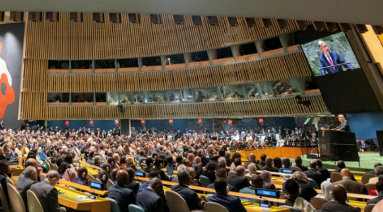Fulfilling one of the Coalition’s founding missions, Kaspersky has co-led the work on the Coalition Against Stalkerware basic technical training on stalkerware aimed to help increase capacity building among non-profit organisations, working with survivors and victims, law enforcement agencies and other relevant parties to tackle this form of online abuse.
Stalkerware is a commercially available software used for cyberstalking, typically installed on an intimate partner or ex-partner’s phone. To raise awareness on this form of digital abuse and train experts working with such victims, Kaspersky and nine other organisations co-founded the Coalition Against Stalkerware in November 2019. It has grown into a global network of more than forty partner organisations from around the globe, working in domestic violence survivor support and perpetrator intervention, digital rights advocacy, IT security, and academic research.
Training for a wide range of experts
The training aims to fill a skills gap, as professionals need tailored resources on how to tackle this form of cyberstalking. The Coalition’s basic technical training covers the most relevant questions on stalkerware from practitioners working with victims of violence: what is stalkerware? What are the methods of installing it? How can you detect and protect against it?
The full training content was developed by Kaspersky experts and Martijn Grooten, a coordinator of the Coalition, with input and feedback from many members. The training content consists of a slide deck and a video presentation, while this is only available in English at the moment, translated versions are envisaged to facilitate capacity building across the world.
In addition, the Coalition puts emphasis on the fact that experts from the area of law enforcement, judiciary or tech business may also benefit from the basic technical training. Therefore, the Coalition aims to share its expertise with a wide range of experts to better help victims.
RELATED
Cyberattack: One In Every 100 Mobile Users In Nigeria, Kenya Affected By Stalkerware
INTERPOL Now Supporting Coalition Against Stalkerware To Fight Tech-Enabled Abuse
COVID-19 Heightens Abuses Traced To Stalkerware In 2020, Kaspersky Reports
“Kaspersky has been researching the topic of stalkerware for years, and we have a lot of technical expertise, which can help protect people. Working on this course together with our partners was a unique experience – colleagues from cybersecurity companies complemented it with their expertise, making it a true cyclopedia on the topic, while professionals from service providers gave tons of amazing insights on how to better deliver this tech information. Now, our experts look forward to continuing their work with organisations which are in direct contact with victims of stalkerware and delivering the Coalition’s training to our partners,” comments Christina Jankowski, Senior External Relations Manager, Kaspersky.
At the beginning, members will run a pilot phase to deliver the basic technical training to partners from the aforementioned groups with whom the Coalition has established contact. In the future, the Coalition envisions providing the training to all interested parties upon request.
“Online violence is just another form of gender based violence. We need to stay ahead of the game and provide training for service providers,” emphasises Alessandra Pauncz, Executive Director at the European Network for the Work with Perpetrators of Domestic Violence which is also a co-founding member of the Coalition Against Stalkerware.
Cyberstalking is a growing issue
Coalition members reported a significant growth of stalkerware incidents in recent years, statistics confirmed by domestic violence organisations as well as from an IT security detection view:
- According to the Centre Hubertine Auclert (2018) in France, 21% of victims have experienced stalkerware at the hands of their abusive partner, and 69% of victims have the feeling that the personal information on their smartphone has been accessed by their partner in a hidden way.
- Research with frontline family violence workers by Australia’s peak domestic violence network, Wesnet, found that the tracking and monitoring of women by perpetrators had risen 244% between 2015 and 2020, and stalking, often via technological means, is the most common form of abuse, happening alongside domestic and family violence.
- Kaspersky alone detected that almost 54,000 of its mobile users were affected globally by stalkerware in 2020. In particular, in Nigeria Kaspersky detected 292 such cases. Keeping in mind the big picture, these numbers only include Kaspersky users, and the total global numbers will be higher.
For users who suspect they may be affected or are being impacted by stalkerware, Kaspersky has the following recommendations:
- Contact local authorities and service organisations supporting victims of domestic violence – for assistance and safety planning. A list of relevant organisations in several countries can be found on www.stopstalkerware.org.
- Watch the Coalition’s video on stalkerware and how to protect against it on the homepage available in English, German, Spanish, French, Italian and Portuguese. There is also a dedicated page for victims and survivors on stalkerware detection, removal and prevention.
- Use proven cybersecurity protection, such as Kaspersky Internet Security for Android, to run a check on your device and discover if stalkerware has been installed on it. Do not rush to remove stalkerware if found on the device as the abuser may notice. It is very important to consider that the abuser may be a potential safety risk. In some cases, the person may escalate their abusive behaviours in response.





























